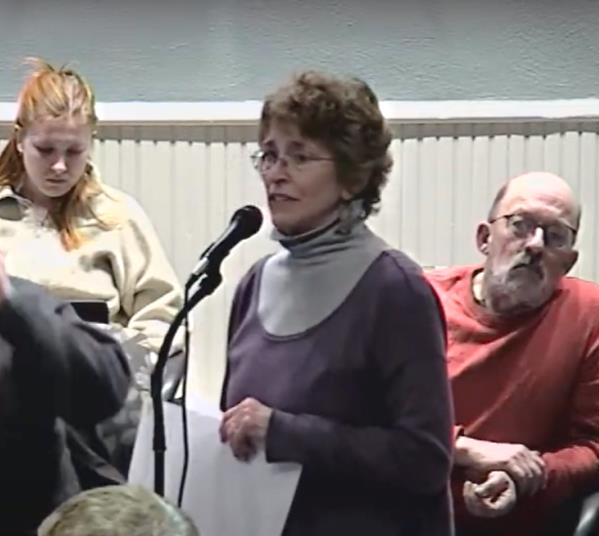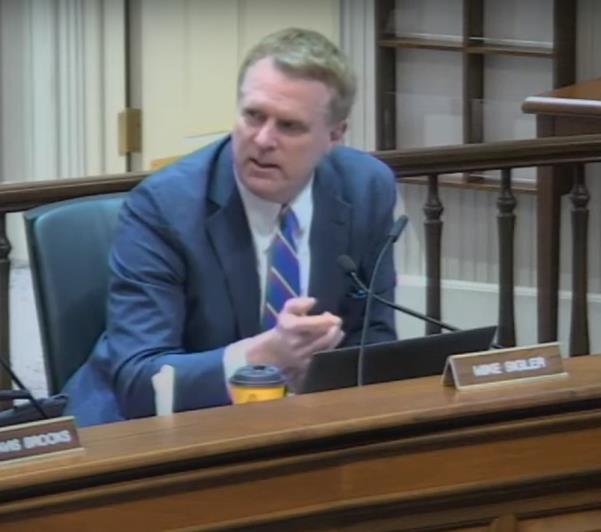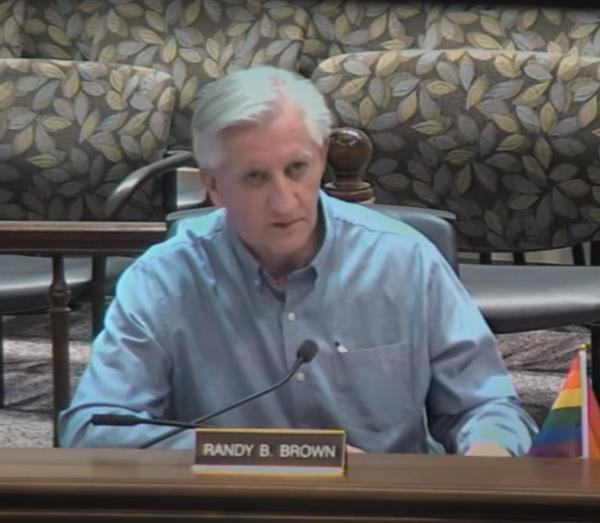by Robert Lynch, March 8, 2023
When Tucker Carlson warns of Big Government barging in to confiscate your gas stove, maybe this is where it starts.

Tuesday night, on what was intended to be just another routine, rubber-stamp endorsement of a liberal green initiative in Albany, the Tompkins County Legislature split down party lines on whether state lawmakers should ban you from putting an oil furnace, a wood stove, or even a gas cooktop in any new home you build anywhere in New York as soon as next January.
“I would just like to remind the Legislature that this is a Resolution that doesn’t talk about something that we’re enacting here in Tompkins County,” Legislature Chair Shawna Black cautioned as lawmakers—and earlier, the public—took turns to weigh in on the issue and then run to their ideological battle stations. “This is one of those resolutions that we send on to representatives…. It’s important. But I don’t know if we need to go so deep in these resolutions,” Black maintained.
No matter. This was about principle; and passion… and politics. And moreover, did anyone in legislative chambers that night really believe a local recommendation would change any minds? Ithaca’s Assemblymember, Democrat Anna Kelles, is among the “All-Electric Building Act’s” key co-sponsors. Democrats stack the State Senate and Assembly. The building code’s ban on new gas stoves will likely pass, like it or not.
The Tuesday debate drew former County legislator Martha Robertson out of retirement, the Dryden Democrat clearly espousing the global warming doomsday scenarios that so many on the Left embrace without challenge, and that so many of their counterparts on the Right challenge without apology.
“This is going to be hard. Nobody said it was going to be easy, nobody said it was going to be cheap,” Robertson, known when in the Legislature for her run-on monologues, said in floor privileges remarkably kept within their allowed three minutes. But Robertson continued, “The fact is the alternative. It’s not going to be life as we know it now. The alternative is going to be harder and more expensive and disastrous for all of us.”
The retired legislator tried to envision what sort of climate her grandchildren might face when they reach her age by 2080. “That’s a terrifying idea,” Robertson warned. “What’s the world going to look like? What’s the world going to look like in ten years?”
Former Tompkins County Environmental Management Council Chair Brian Eden shared Robertson’s concern. Eden called climate change an “existential issue,” and welcomed the All-Electric Building Act as a means to an end.
“It actually is a climate emergency,” Eden insisted. “But it’s not recognized as such by most people.”
And one of those in legislative chambers who refuses to accept the climate crisis as Eden views it is Lansing Republican Mike Sigler. He, Newfield-Enfield’s Randy Brown, and Groton’s Lee Shurtleff, all Republicans, voted against the Legislature’s climate-conscious Resolution. They were the only ones who did.

“The problem with this whole thing is,” Sigler told legislators, “it talks about demand…. We’ll tell people we’re going to electrify houses, we’re going to electrify cars. And frankly, none of that matters.”
And, Sigler maintained, the argument doesn’t matter because electrical supply is lacking to meet the expected increased demand electrification will require.
“Right now in this state, 71 per cent of your electricity comes from fossil fuels,” Sigler said. “That means 29 per cent comes from renewables. But what they don’t tell you is that more than half of that renewable is made up by Niagara Falls. And they’re not making any more Niagara Falls.”
Sigler’s remark revived a pro-nuclear argument he’s raised at prior meetings. Tuesday it ignited a sidebar debate that Shawna Black eventually attempted to reign in. Before she did, legislator Rich John conceded that as to nuclear, “We have to be open to have that conversation.”
Dryden’s Mike Lane put his opinion crisply. “No to nuclear,” Lane said. That remark, with Sigler, touched a nerve.
“Then I would have to question if is this actually an existential crisis?” Sigler responded.
“We can take this into any single thing that was an existential crisis like World War II,” Sigler continued, “when we were willing to sacrifice people on a beachhead to get into France. So if this is an existential crisis that’s going to kill us all, and we are not willing to look at something that is tried and true and improved over the last 50 years with not a single U.S. death, and we’re not willing to look at that and the new technology that’s come over since the last half-century? Then yes, it is not an existential crisis.”
Now it was time for the Legislature’s liberals to get incensed. Ulysses Anne Koreman was one of two who quickly called to shut down the nuclear debate and bring matters to a vote. When she did, the climate Resolution passed, 11 votes to three.
“I’m against fracking completely, I think it’s a bad idea,” Newfield’s Randy Brown remarked before casting his vote on Sigler’s side. “But I also think there’s a value for natural gas.” And as for the resolution on the floor, Brown had this opinion: “I think it’s too aggressive.”
The “All-Electric Building Act,” sponsored by Manhattan’s Brian Kavanagh in the State Senate and Brooklyn’s Emily Gallagher in the Assembly, is one of those Albany bills that’s easy to ignore until it turns around and bites you. The measure would speed up implementation of green building initiatives already advanced by Governor Hochul in her State of the State Address.

Put plainly, and giving no exception for single –family residences, the legislation would direct “the state fire prevention and building code council to prohibit the installation of systems that can be used for the combustion of fossil fuels in new construction.” Governor Hochul’s timetable for the mandate would require any newly-constructed building less than seven stories tall to be all-electric by 2026, with taller structures to be the same by 2029.
The Kavanaugh/Gallagher bills that the County Legislature endorsed Tuesday would move up those dates by two years each. Should they pass, no new home could have a fossil-fueled energy source after this December.
Lost, of course, in the debate is the fact that fossil fuels still generate most of our electricity, and that the initiatives Martha Robertson and Brian Eden so fervently support carry more of an aspirational feel to them, rather than arguments based on cold, hard logic.
Tuesday’s adopted resolution also backed other pending green initiatives in Albany, including one that Lansing’s Sigler termed a “cap and trade” payment system that Sigler argued would only mean higher power bills to consumers.
“This necessarily increases the cost of electricity on every single constituent I have,” Sigler argued. “And frankly, they’re tapped out.”
To be truthful, no one’s coming after your existing gas cook stove or oil furnace… at least not quite yet. But if the measure endorsed be Tompkins lawmakers Tuesday night becomes law, don’t expect to put one of them into any new home you build next year. That’s freedom of choice, New York style.
###

